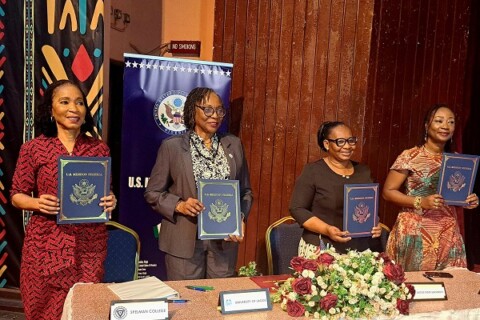The Joint Admissions and Matriculation Board (JAMB) has exposed widespread malpractice during the 2025 Unified Tertiary Matriculation Examination (UTME), describing the trend as increasingly sophisticated and technology-driven.
Findings from JAMB’s Special Committee on Examination Infractions (SCEI), presented on Monday at the Board’s headquarters in Abuja, revealed 4,251 cases of “finger blending” a biometric manipulation technique designed to bypass fingerprint verification.
Chairman of the Committee, Dr. Jake Epelle, also reported 190 cases of Artificial Intelligence–assisted impersonation, where candidates allegedly used image morphing tools to falsify identities.
The panel, inaugurated last month to probe infractions and review JAMB’s systems, uncovered 1,878 false disability claims, alongside forged documents, multiple National Identification Number (NIN) registrations, and organised syndicate collusion.
According to Dr. Epelle, examination malpractice has become a highly structured enterprise, with parents, schools, tutorial centres, and some CBT operators complicit in the fraud. He stressed that weak legal provisions continued to undermine effective enforcement.
To restore integrity to the admission process, the committee recommended a multi-pronged approach, including AI-driven biometric anomaly detection, real-time surveillance, annulment of fraudulent results, and prosecution of offenders. It also advised the creation of a Central Sanctions Registry accessible to institutions and employers.
Other preventive measures suggested include digitisation of correction procedures, stricter disability verification, improved mobile-first platforms, and an end to bulk registrations by schools. The committee further called for amendments to the JAMB Act and the Examination Malpractice Act to capture digital and biometric fraud, while proposing rehabilitative measures for under-18 offenders under the Child Rights Act.
Beyond enforcement, the panel urged cultural reorientation through a nationwide “Integrity First” campaign, integration of ethics into school curricula, and stronger parental accountability.
Receiving the report, JAMB Registrar, Professor Is-haq Oloyede, commended the committee’s work, describing the revelations as a “wake-up call” for Nigeria’s education sector. He noted that while progress had been made in curbing malpractice, the rising sophistication of schemes underscored the need for continuous adaptation.
Professor Oloyede assured that JAMB would act decisively on the recommendations, disclosing ongoing discussions with security agencies and the National Assembly to strengthen the legal framework. He emphasised that the complicity of parents and tutorial centres reflected a deeper ethical crisis requiring urgent national dialogue.
The Registrar reaffirmed JAMB’s commitment to transparency and fairness, pledging continued investment in technology, stronger institutional collaborations, and wider public awareness campaigns to ensure merit remains the foundation of university admissions in Nigeria.





